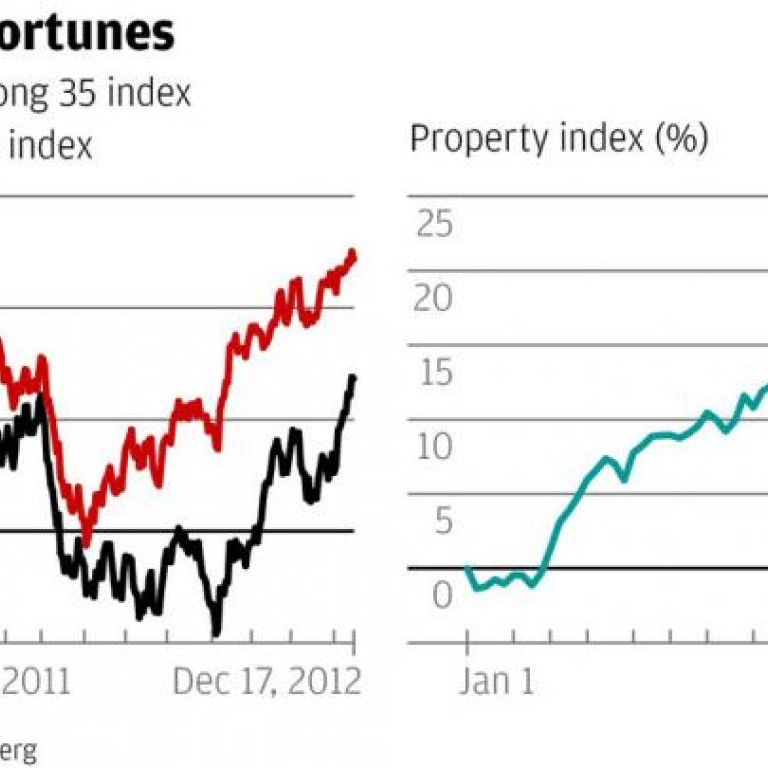
Wrong about the stock market, right about government idiocy
Lessons to learn from the hits and misses as equities and property sectors make strong gains over the past year
This will be the last of 2012, so it's a good time to look back at the past year and see what the column got right, where I went wrong, and whether there are any lessons to be learned for 2013.
The first lesson is that if a newspaper columnist is dumb enough to make predictions on a regular basis, then some of them are going to be wrong.
For example, this time last year I argued that the forecasts made by investment banks for stock market performance looked "absurdly over-optimistic".
I singled out Credit Suisse for its Panglossian attitude to markets, although I could just have easily picked most of its competitors.
At the time, analysts at Credit Suisse were forecasting that Hong Kong stocks would climb 22 per cent this year, with shares of mainland companies listed in the city set to rise 19 per cent.
With the euro zone sliding into recession, the United States' economy struggling and mainland China's growth slowing, I argued they were being far too sanguine about the market's prospects.
Well, with just two weeks of the year left, the Hang Seng HK35 index of local stocks is up 24 per cent over the year so far, while the H-share index of mainland companies has gained 14 per cent (see first chart).
I had failed to foresee two things: the US Federal Reserve's new round of quantitative easing, which has pumped an estimated HK$460 billion into Hong Kong's financial system market since the summer, and the sharp turnaround in international sentiment towards mainland companies in response to Beijing's efforts to support growth.
Clearly, I owe Credit Suisse an apology for my scepticism.
Happily, not all of predictions for this year proved so lamentably wide of the mark.
Throughout the year I was resolutely bullish on Hong Kong's property market (or at least I was until last month's eruption of car parking space speculation, which smacks strongly of late-cycle craziness).
And despite a spate of warnings from Hong Kong's officials over the months, prices did indeed continue to climb. They've slipped back a tad over the past few weeks, but they remain up 20 per cent over the year to date (see second chart).
I was more doubtful about the prospects both for commodities and for the yuan. A year ago, I warned that the commodity bull market would run out of puff this year. The CRB commodity price index has since fallen by 3.4 per cent.
And in January, I said that one of the most rewarding asset classes of 2011 - yuan deposits - would underperform in 2012. So far, they have managed a total return to Hong Kong-based savers of less than 2 per cent.
There were some telling calls at the company level too. In March, warned that Hong Kong Exchanges and Clearing's share price would underperform over the rest of the year. It has since fallen 10 per cent despite the impressive rise of the broader market.
Also in March, I also warned that Li Ka-shing's attempts to float his yuan-denominated Hui Xian real estate investment trust in Singapore would fail. The deal was finally scrapped in October.
scored some notable hits in the public policy sphere too. For example, in January, the column pointed out that the Hong Kong government's plans to launch new reclamation projects at up to 25 sites around the territory's coastline were based on population forecasts that were wildly exaggerated.
That column elicited an angry e-mail from the Census and Statistics Department defending its forecasts.
Since then, however, the government has revised its population projections downwards, calling into question its reclamation proposals.
So I suppose if there is a lesson to be learned, it's that if I want to get things right next year, I shouldn't try to second-guess the stock market. I should just stick to highlighting official nonsense and ineptitude.

